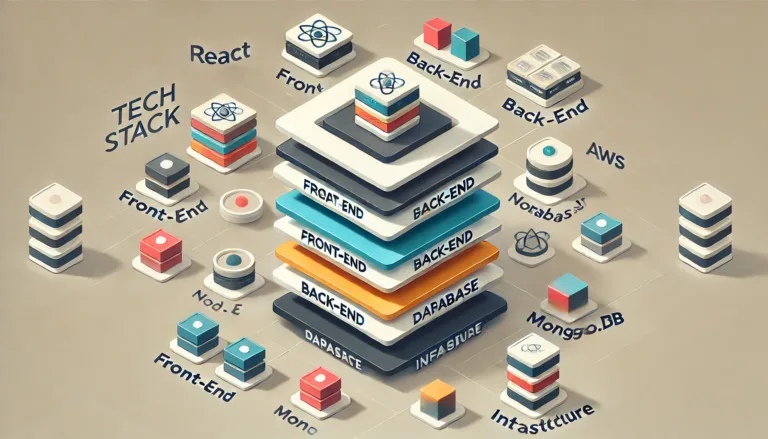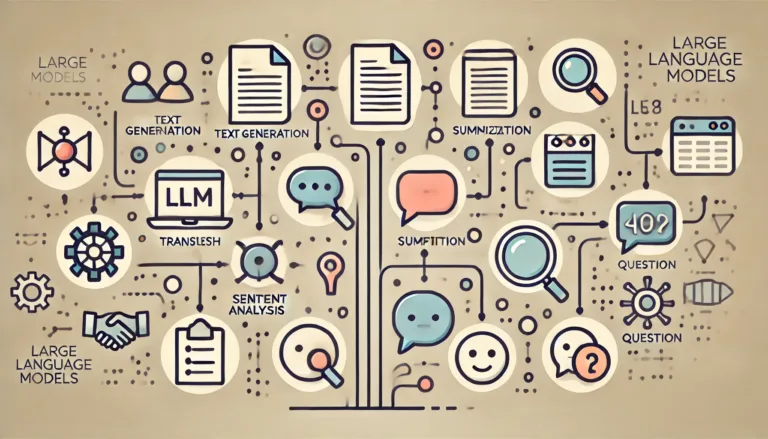Introduction
Gaming has always been about creating immersive experiences, and with AI, those experiences are becoming more dynamic, personalized, and intelligent. Whether it’s designing AI opponents that learn from your moves or generating entire game worlds, AI is transforming the gaming industry in exciting ways. If you’re passionate about gaming and technology, this article will introduce you to 32 project ideas that can help you create the next generation of games.
Beginner-Level AI Projects in Gaming
These beginner-level projects are ideal for those new to AI in gaming, offering foundational knowledge in how AI can be integrated into game development.
1. AI-Generated Game Levels
- Objective: Create AI algorithms that generate new levels for video games.
- Tools and Technologies: Python, Procedural Content Generation libraries, Unity.
- Learning Outcomes: Learn how to use AI to create dynamic and endless levels, enhancing replayability.
2. Game Bots for Multiplayer Games
- Objective: Develop AI bots that play against or with human players.
- Tools and Technologies: Python, Reinforcement Learning, game engines like Unreal Engine.
- Learning Outcomes: Understand how AI can be used to create competitive or cooperative game bots.
3. AI in Game Physics Simulation
- Objective: Enhance game physics with AI for more realistic simulations.
- Tools and Technologies: Python, Unity, physics engines.
- Learning Outcomes: Learn to implement AI-driven physics that react dynamically to in-game events.
4. Personalized Gaming Experiences
- Objective: Use AI to tailor gaming experiences to individual players.
- Tools and Technologies: Python, TensorFlow, player data analysis.
- Learning Outcomes: Explore how AI can adjust game difficulty, content, and recommendations based on player behavior.
5. AI-Powered Non-Player Characters (NPCs)
- Objective: Develop NPCs with advanced behaviors using AI.
- Tools and Technologies: Python, Behavior Trees, Unity AI.
- Learning Outcomes: Learn to create NPCs that adapt and respond intelligently to players’ actions.
6. Procedural Content Generation
- Objective: Use AI to generate game content like maps, items, or quests.
- Tools and Technologies: Python, Perlin noise, Generative Adversarial Networks (GANs).
- Learning Outcomes: Understand procedural generation and how it can create unique gaming experiences.
Intermediate-Level AI Projects in Gaming
These projects require more advanced skills and involve integrating AI into various aspects of game development.
7. AI for Game Testing
- Objective: Build AI systems that automate the game testing process.
- Tools and Technologies: Python, Machine Learning algorithms, testing frameworks.
- Learning Outcomes: Learn how AI can identify bugs and optimize the testing process by simulating player interactions.
8. AI in Game Storytelling
- Objective: Create dynamic storylines that adapt to player choices using AI.
- Tools and Technologies: Python, Natural Language Processing (NLP), interactive story frameworks.
- Learning Outcomes: Explore how AI can create personalized narratives based on player decisions.
9. AI-Powered Game Assistants
- Objective: Develop AI assistants that help players navigate games.
- Tools and Technologies: Python, chatbot frameworks, NLP.
- Learning Outcomes: Understand how AI can enhance player experience by providing tips, tutorials, and real-time assistance.
10. AI for Game Analytics
- Objective: Analyze player behavior and game data to improve game design.
- Tools and Technologies: Python, data analytics tools, machine learning.
- Learning Outcomes: Learn to use AI to gather insights from gameplay data, optimizing game design for better engagement.
11. AI in Virtual Reality Games
- Objective: Enhance VR gaming experiences with AI-driven interactions.
- Tools and Technologies: Unity, VR development kits, machine learning models.
- Learning Outcomes: Explore how AI can create more immersive VR environments by adapting to player movements and actions.
12. AI-Powered Game Streaming
- Objective: Build systems that optimize game streaming quality.
- Tools and Technologies: Python, streaming platforms, AI-driven optimization algorithms.
- Learning Outcomes: Learn how AI can reduce latency, improve video quality, and enhance the streaming experience for gamers.
13. AI for Dynamic Difficulty Adjustment
- Objective: Adjust game difficulty in real-time based on player performance.
- Tools and Technologies: Python, machine learning algorithms, player performance data.
- Learning Outcomes: Understand how AI can maintain the challenge and fun in games by adapting to the player’s skill level.
14. AI-Powered Game Art Creation
- Objective: Use AI to create or enhance game art assets.
- Tools and Technologies: GANs, image processing libraries, Unity.
- Learning Outcomes: Learn how AI can automate the creation of textures, models, and other art assets, speeding up the development process.
15. AI in Esports
- Objective: Develop AI tools to analyze and improve esports strategies.
- Tools and Technologies: Python, data analytics, reinforcement learning.
- Learning Outcomes: Explore how AI can be used to analyze professional gameplay and optimize strategies for competitive advantage.
16. Voice-Controlled Games
- Objective: Create games that players control using their voice.
- Tools and Technologies: Python, speech recognition APIs, game development platforms.
- Learning Outcomes: Learn to implement voice commands into games, making them more interactive and accessible.
Advanced-Level AI Projects in Gaming
These advanced projects involve cutting-edge AI research and complex integrations, ideal for experienced developers looking to push the boundaries of gaming technology.
17. AI for Game Recommendation
- Objective: Build systems that recommend games based on player preferences.
- Tools and Technologies: Python, recommendation engines, user profiling.
- Learning Outcomes: Understand how AI can suggest games by analyzing player behavior and preferences.
18. AI in Game Music Generation
- Objective: Develop AI that generates music tailored to the game environment.
- Tools and Technologies: Python, generative music algorithms, audio processing libraries.
- Learning Outcomes: Learn how AI can create dynamic soundtracks that enhance the gaming atmosphere.
19. AI for Game Modding
- Objective: Create tools that assist players in modding games with AI.
- Tools and Technologies: Python, game modding frameworks, machine learning.
- Learning Outcomes: Explore how AI can simplify the modding process, allowing players to customize games more easily.
20. AI-Powered Game Dialogue Systems
- Objective: Develop dynamic dialogue systems using NLP.
- Tools and Technologies: Python, NLP libraries, dialogue management systems.
- Learning Outcomes: Learn to create more natural and responsive in-game conversations with AI.
21. AI in Game Economy Management
- Objective: Use AI to balance in-game economies.
- Tools and Technologies: Python, simulation models, machine learning.
- Learning Outcomes: Understand how AI can create and maintain balanced economies in complex game worlds.
22. AI for Realistic Game Animations
- Objective: Enhance character animations using AI.
- Tools and Technologies: Python, motion capture data, machine learning models.
- Learning Outcomes: Explore how AI can improve the realism and fluidity of character movements.
23. AI in Augmented Reality Games
- Objective: Develop AR games that use AI to interact with the real world.
- Tools and Technologies: ARKit, machine learning, computer vision libraries.
- Learning Outcomes: Learn to create immersive AR experiences where AI interacts seamlessly with real-world elements.
24. AI-Powered Game Narration
- Objective: Create AI systems that narrate game events in real-time.
- Tools and Technologies: Python, text-to-speech APIs, game engines.
- Learning Outcomes: Understand how AI can provide dynamic narration that adapts to in-game events.
25. AI in Game Social Interactions
- Objective: Enhance multiplayer games with AI-driven social interactions.
- Tools and Technologies: Python, sentiment analysis, NLP.
- Learning Outcomes: Learn how AI can analyze and respond to player interactions, fostering more engaging social experiences.
26. AI for Game Content Moderation
- Objective: Build systems that moderate user-generated content in games.
- Tools and Technologies: Python, machine learning, content moderation platforms.
- Learning Outcomes: Explore how AI can ensure a safe and positive gaming environment by filtering inappropriate content.
27. AI for Virtual Worlds
- Objective: Use AI to create and manage complex virtual environments.
- Tools and Technologies: Unity, procedural generation, AI-driven environmental modeling.
- Learning Outcomes: Learn how AI can generate entire worlds with realistic ecosystems and behaviors.
28. AI in Game Localization
- Objective: Automate the localization of games for different languages.
- Tools and Technologies: Python, translation APIs, NLP.
- Learning Outcomes: Understand how AI can translate and adapt game content for global audiences.
29. AI for Game Design Assistance
- Objective: Develop tools that help game designers create better games.
- Tools and Technologies: Python, machine learning, design analytics.
- Learning Outcomes: Learn how AI can assist in the game design process by providing data-driven insights and suggestions.
30. AI-Powered Game Leaderboards
- Objective: Build systems that rank players using AI-driven metrics.
- Tools and Technologies: Python, data analytics, machine learning models.
- Learning Outcomes: Understand how AI can create more meaningful and competitive leaderboards by analyzing player performance.
31. AI in Interactive Fiction
- Objective: Create interactive fiction stories with AI-driven plots.
- Tools and Technologies: Python, NLP, interactive fiction frameworks.
- Learning Outcomes: Explore how AI can generate branching narratives that adapt to player choices.
32. AI for Game Asset Optimization
- Objective: Use AI to optimize game assets for performance.
- Tools and Technologies: Python, optimization algorithms, machine learning.
- Learning Outcomes: Learn how AI can streamline game development by optimizing assets for faster loading times and better performance.
Conclusion
AI is taking gaming to new heights, enabling developers to create experiences that are more responsive, immersive, and personalized. Whether you’re building AI-driven characters or procedurally generating game environments, the potential for innovation is immense. As you explore these projects, think about how you can push the boundaries of what’s possible in gaming.
After delving into how AI is enhancing the world of gaming, it’s time to see how AI can make a positive impact on our planet. Our next article on AI in Environmental Sustainability will explore project ideas focused on using AI to protect and preserve the environment. Following that, we’ll take a creative turn and examine how AI is influencing the Creative Arts.









